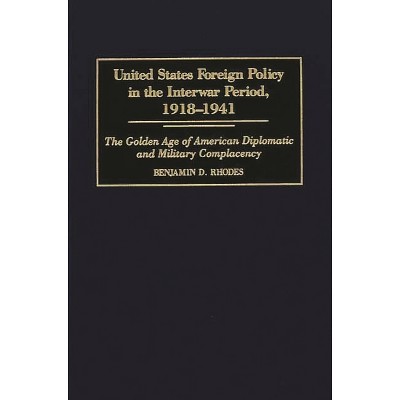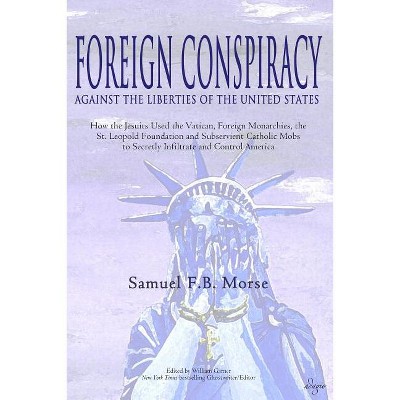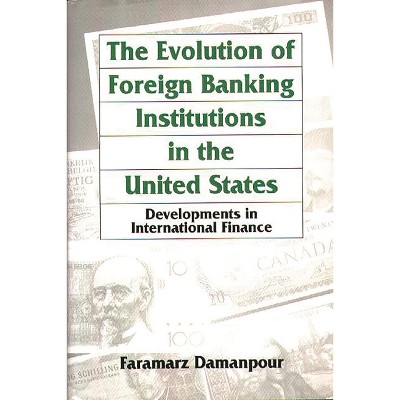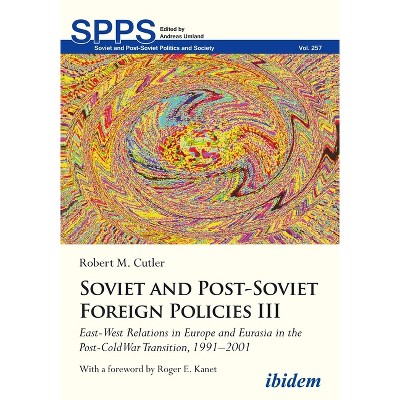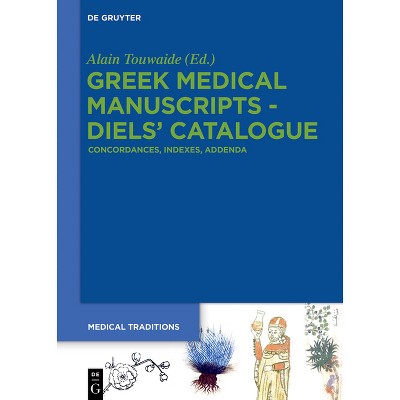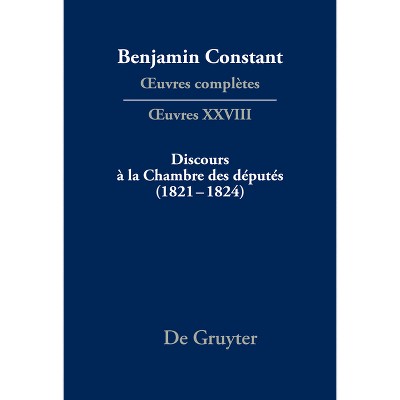Foreign Policies of Illiberal States - by Andrey Makarychev & I Gede Wahyu Wicaksana (Hardcover)

About this item
Highlights
- Foreign Policies of Illiberal States examines how the Russian war on Ukraine affects the functioning of different models of international society.
- About the Author: Andrey Makarychev is Professor of Regional Political Studies at Johan Skytte Institute of Political Studies at the University of Tartu.
- 120 Pages
- Political Science, Comparative Politics
Description
About the Book
Foreign Policies of Illiberal States compares the trajectories of foreign policies in two different countries, Russia and Indonesia. They represent two different models of illiberal states' foreign policies, which will be examined in this book usingBook Synopsis
Foreign Policies of Illiberal States examines how the Russian war on Ukraine affects the functioning of different models of international society. Focusing on the two spheres of governance and security, it analyses the effects of Russia's invasion of Ukraine, which has significantly reframed many issues of global politics, including the feasibility of multilateralism under war conditions. The academic debate around the issue as it pertains to the two countries is shaped by a number of arguments. Indonesia's position is one of logic and the effective functioning of global organisations, symbolised by President Widodo's peacemaking efforts in visits to Kyiv and Moscow. Russia's approach is overwhelmingly defined by security considerations, framing the military intervention against Ukraine as part of a broader confrontation with the Euro-Atlantic West. The hyper-securitisation of Ukraine by Russia was paralleled by efforts to de-securitise relations with the global South by shifting their fulcrum from the war to generalised and routinised socio-economic issues. Based on these positions, it could be said that a multi-order world is taking shape, where multilateralism is unlikely to be controlled only by the major powers. .Review Quotes
A significant intervention in the study of global order, this book incisively unpacks the foreign policies of illiberal states in an era of accelerating fragmentation. With analytical precision and theoretical foregrounding, it reshapes how we understand power, sovereignty, and diplomacy beyond the liberal framework. Essential reading for anyone seeking to grasp the contours of a rapidly transforming world. Harsh V Pant, Professor of International Relations, King's College London & Vice President, Observer Research Foundation, New Delhi. It is not often that we see parallels drawn between Russia and Indonesia. In writing this compact and insightful book, Makarychev and Wicaksana have done just that. Their examination of the foreign policies of Russia and Indonesia in the post-Cold War era as illiberal states is informed by theory but also packs a lot of useful information. Pradeep Taneja, Associate Professor of International Relations, University of Melbourne, Australia. Makarychev and Wicaksana offer a timely and original contribution by showing that illiberal states like Russia and Indonesia are not merely reacting to the liberal international order; they are actively reshaping it. Through a rich comparative analysis, the book demonstrates how these states pursue foreign policies grounded in sovereignty, identity, and resistance to Western norms, while still engaging in global arenas like the G20, BRICS, and regional diplomacy. By conceptualising international illiberalism as a distinct force, the authors challenge us to rethink how power, norms, and legitimacy work in today's multipolar world. This is essential reading for scholars, students, and policymakers interested in foreign policy, global governance, Southeast Asia, and the shifting dynamics of the post-liberal international order. Moch Faisal Karim, Associate Professor, Universitas Islam Internasional Indonesia, Visiting Senior Fellow, National University of Singapore
About the Author
Andrey Makarychev is Professor of Regional Political Studies at Johan Skytte Institute of Political Studies at the University of Tartu. He teaches courses on globalization, political systems in a post-Soviet space, visual politics, and biopolitics.
I Gede Wahyu Wicaksana is Professor of International Politics and Security Studies in the Department of International Relations Faculty of Social and Political Sciences, Universitas Airlangga Surabaya, Indonesia. His research interests include Indonesian politics, security and foreign policy, ASEAN regionalism and international relations of great powers in the Indo-Pacific, and non-traditional security challenges in Southeast Asia, focusing on climate change, infectious disease and transnational terrorism.






